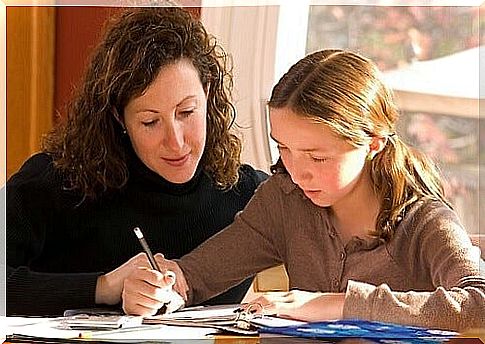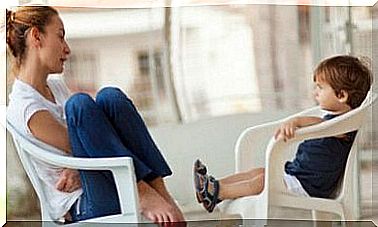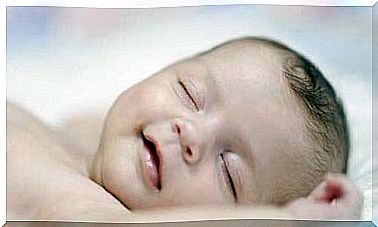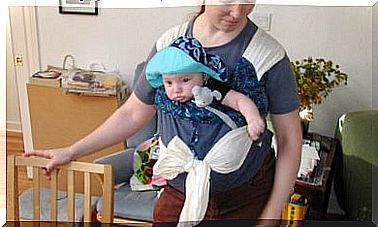What Are Helicopter Parents?

Have you ever heard the term “helicopter parents”? Do you have any idea what they are? Are you among them? You’ve probably heard of them sometimes, but you don’t have a clear idea of what they are. Here we will give you a definition and help you find out if you are part of it.
The helicopter parents are parents who focus excessively on their children. They tend to take too much responsibility for their children’s experiences, successes, and failures. They are characterized by wanting to be everywhere and come to excesses such as overprotection, excess control and an excessive pursuit of perfection.
Meaning of “helicopter parents”
The term “helicopter parent” originated in 1969 when Dr. Haim Ginott wrote the book “Teens and Parents”. During various interviews he conducted to gather information, he found that many teenagers perceived their parents as helicopters perpetually flying over them.
Ginott took this term and used it in the book. Later, in 2011 this term was adopted as official and is now also present in some dictionaries.
Who is a helicopter parent?
A helicopter parent could be anyone. It has been noted, however, that parents of teenagers are more likely to be helicopter parents. They have the characteristic of taking responsibility for tasks that belong to their children, such as:
- Organize school homework
- Ask professors questions about lessons
- Over-checking children’s exercise habits
- Choose friends
- Helping children disproportionately
- Do their homework or at least the more difficult ones

These are behaviors that can emerge at any stage of children’s life, but which seem more present when they are adolescents.
The motivations of the helicopter parent
Helicopter parents have different reasons for their behavior, since it is an instinct. The most common reasons are:
1. Fear of negative consequences
The idea that your children don’t fit into the group, have bad grades, or aren’t successful in a certain task may seem too serious for such a parent. His priority is to avoid any suffering of the children, even those that are common and help them grow.
The irony, however, is with this behavior it risks provoking in children:
- Unhappiness
- Stress
- I decline
- Excessive work
- Uncertain results
2. Anxiety
Some helicopter parents feel overly concerned about economic, work, and social factors. This leads them to want their children to achieve good social status and put pressure on them as a means of protection.
The main risk of this kind of pressure is that children can feel compelled to create false relationships. Furthermore, they may learn that the economic component is the most important and forget to see the value of people beyond what they have.
3. Self-compatibility
Adults who experience or have experienced rejection, lack of love, or who were ignored in childhood have a greater risk of becoming helicopter parents. They try to prevent everything that was bad for them.
They will try to fill all the emotional gaps of when they were little, but in the process they run the risk of creating the opposite problem. It is therefore important for this class of parents to follow therapy to learn to separate their own experiences from those of their children.
4. Pressure from other parents
It must be recognized that living with other parents can generate pressure and competition. It’s okay to try to be a better parent, but don’t put too much pressure on your children to be better than others.
Competitive parents can easily lose track of the pressure they exert. Each time they will overcome new limits, until the children can no longer take it. The risk is therefore that of being able to develop a high sense of guilt in children.
The consequences of helicopter parenting
Helicopter parents start with the best of intentions. The problem is that the limits are easy to overcome. Many parents therefore end up causing serious emotional problems in their children and negatively affecting the relationship they have with them.

It is important that at all times you give yourself time to talk to your child to find out if you are crossing the line and to understand how he is feeling. Sometimes your child may tell you that he is fine but that his self-esteem and self-confidence is beginning to be compromised. You must thus learn to evaluate and recognize the signs to avoid worse damage in the future.









